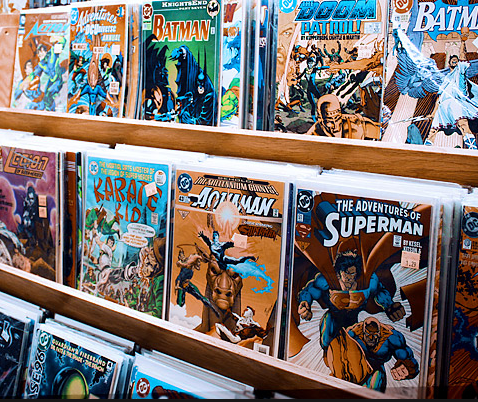In a world filled with diverse forms of entertainment, comic books stand out as a unique and impactful medium that transcends the boundaries of mere amusement. While often associated with superheroes and fantasy realms, comic books have quietly evolved into a powerful tool that influences culture, education, and social awareness. In this exploration of “The Importance of Comic Books,” we’ll delve into the multi-faceted significance of this art form, revealing the depth and breadth of its impact on society.

The Evolution of Comic Books
To begin with, comic books have come a long way from their humble origins as pulp magazines in the early 20th century. Initially perceived as disposable entertainment for children, these illustrated narratives have grown into a global phenomenon, shaping the way stories are told and consumed. What began as a niche market has blossomed into a vibrant industry, with diverse genres and styles catering to audiences of all ages.
Educational Potential
Contrary to the misconception that comic books hinder literacy, research suggests that they can actually enhance reading skills. The combination of visuals and text encourages readers to make connections between images and words, improving comprehension and critical thinking. For young readers, especially reluctant ones, comics can serve as a gateway to a lifelong love of reading. Moreover, the creative format of comic books nurtures artistic expression and storytelling. Aspiring artists and writers find a unique canvas in the panels of a comic book, honing their skills in visual storytelling, character development, and pacing. Many successful authors and illustrators credit their passion for storytelling to the inspiration derived from comic books during their formative years.
Cultural Impact of Comic Books
Furthermore, comic books have played a pivotal role in reflecting and influencing cultural norms and values. Beyond the realms of capes and masks, comics have addressed social issues, challenged stereotypes, and provided a platform for marginalized voices. Iconic characters like Wonder Woman, Black Panther, and Ms. Marvel have become symbols of empowerment, breaking traditional moulds and inspiring a new generation. Through the lens of fantastical worlds and extraordinary characters, comic books often tackle real-world problems, fostering empathy and understanding. This unique blend of entertainment and social commentary has the potential to shape perceptions and ignite important conversations on topics ranging from diversity and inclusion to environmentalism and justice.
Comic Books Promotes Community Building
Comic book fandom is a global phenomenon that transcends geographic boundaries. Conventions, online forums, and fan clubs provide a space for enthusiasts to connect, share their passion, and celebrate the art form. These communities offer a sense of belonging, creating a shared identity among fans who might otherwise be worlds apart. Moreover, the popularity of comic book adaptations in film and television has catapulted characters like Spider-Man and the Avengers into mainstream culture, further expanding the community.
The shared experience of enjoying these narratives fosters a sense of camaraderie among fans, creating a supportive network that extends beyond the pages of the comic. Comic book fandom isn’t just a collection of enthusiasts; it’s a global community that defies geographical constraints. This transcendent phenomenon has transformed from a niche interest into a cultural force that brings together people from diverse backgrounds, united by a shared love for the art form. Let’s delve deeper into how comic book communities build bridges, fostering connections and creating a sense of belonging that goes beyond the inked pages.
Conclusion
In conclusion, the importance of comic books extends far beyond their role as a source of entertainment. From enhancing literacy skills and fostering creativity to shaping cultural perceptions and building global communities, this type of books have become a dynamic force in the world of storytelling. As we continue to embrace the diversity of narratives within this medium, we open ourselves to the limitless possibilities of imagination, empathy, and societal impact. So, the next time you pick up a comic book, remember that you’re not just entering a fictional world—you’re engaging with a powerful force that has the potential to shape minds and inspire change.

